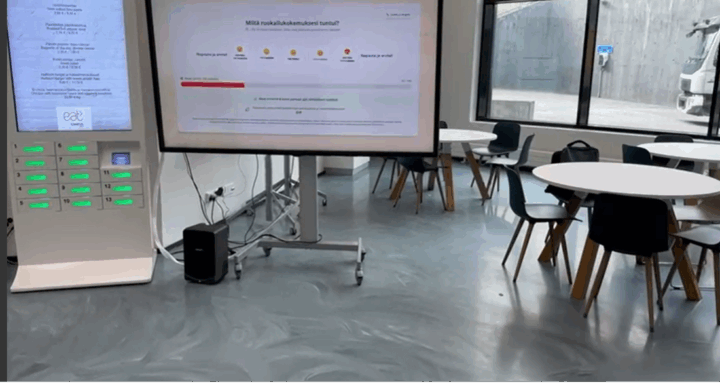Can the Beat of the Music Curb Food Waste?
Can the Beat of the Music Curb Food Waste? A New Study by the University of Turku and the University of Queensland
The Dining Flow project at the University of Turku is excited to announce a new international collaboration with researchers at the University of Queensland in Australia (remember when Niko visited there?). This partnership is launching an innovative study to investigate a subtle but potentially powerful factor in our dining environments: music. Specifically, we are exploring how the tempo of background music can influence the amount of food diners leave on their plates in a buffet-style restaurant.
The Science Behind the Sound
Our daily decisions are often shaped by environmental cues we barely notice. One such cue is music. Research has shown that music can affect our level of physiological arousal, a state of alertness and stimulation. Faster music tends to increase arousal, which can lead to more impulsive behaviors. In a dining context, this heightened arousal might disrupt our ability to process sustainability-focused messages or to self-regulate how much food we select, potentially leading to greater food waste.
This is the core idea our collaborative study aims to test. We hypothesize that:
- Fast-tempo music will increase food waste compared to slow-tempo music or no music at all.
- Conversely, slow-tempo music will lead to lower food waste than the other conditions.
We are also exploring whether slow-tempo music might amplify the effectiveness of “green” messaging aimed at encouraging sustainable choices.
A Naturalistic Experiment
To investigate these hypotheses, we are conducting an experiment over couple of weeks at Flavoria, a naturalistic lab restaurant setting at the University of Turku, serving students, staff, and the public. The restaurant will cycle through two different conditions, fast and slow tempo music over each week. We will also have baseline control conditions with no music. We will be measuring several key variables:
- The amount of food waste per diner, using a sophisticated sensor system.
- The total number of diners each day.
- Diner satisfaction, to ensure the dining experience is not negatively impacted.
Preliminary online studies have already confirmed that our selected music tracks effectively influence arousal levels, and a survey is currently underway to validate the link between music tempo and food serving intentions.
What We Hope to Achieve
This study is currently in progress, and we are eager to see the results. We anticipate that fast-tempo music will lead to more impulsive serving behavior and, consequently, more food waste. The findings from this research could provide valuable insights for designing more sustainable dining environments. By understanding how simple environmental changes can influence behavior, restaurants and food service providers can implement strategies to reduce food waste and promote more mindful consumption.
We look forward to sharing the results of this exciting collaboration soon. Stay tuned for updates!


